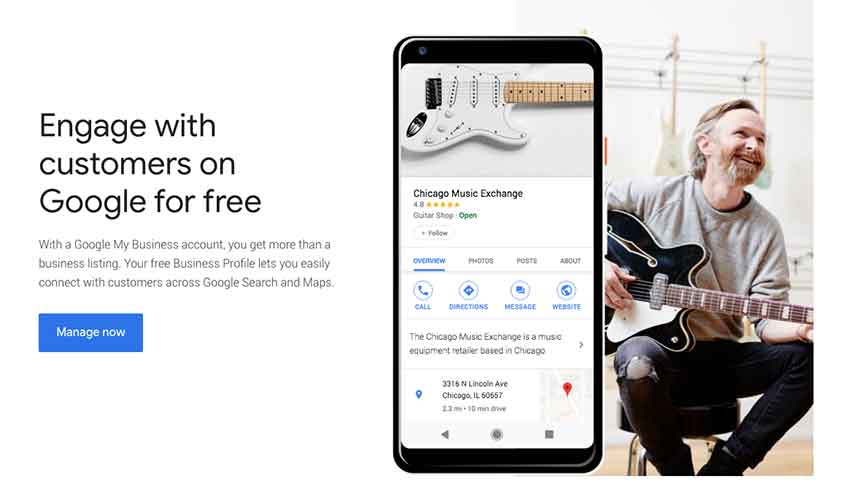Show:
Local Search Optimization: Key Strategies for Digital Success
Launch your business in the forefront of local search results to draw in more customers?
Local search optimization stands out as a critical method to improve business visibility and attract local customers. The importance of establishing a strong local presence can’t be ignored because 87% of consumers use Google for local business searches.

Here’s the thing…
Most businesses are doing local SEO wrong. Their outdated approach prevents them from utilizing the fundamental strategies which actually drive results.
Are you prepared to enhance your local search performance?
- Understanding Local Search Fundamentals
- Top Local Search Ranking Factors
- Optimizing Your Google Business Profile
- Building Local Citations and Links
- Mobile Optimization Strategies
- Local Content Creation Tips
Understanding Local Search Fundamentals
Local search optimization operates differently compared to traditional SEO methods. Traditional SEO targets national or global audiences while local SEO focuses on engaging customers within your specific geographic region.
And here’s what makes it so powerful:
The data from CPSC illustrates why optimizing for local searches remains absolutely essential. Your business should appear in search results when people use location-based terms like “near me” or your city name to find your services.
The best part? Local search optimization drives real results. Recent research reveals that 88% of mobile searches for local businesses lead to a physical visit or phone call within the next 24 hours according to data from CPSC.
Think about it:
People who search for local businesses of your kind typically intend to make an immediate purchase. People who search for what you offer are looking for a solution from your location. Optimizing your local presence allows you to capture these high-intent customers at the exact time they are ready to make a purchase.

Top Local Search Ranking Factors
Discover which factors most influence local search rankings. The experts from Cape Cod SEO along with other industry leaders have identified three main ranking factors that Google’s Local Search algorithm prioritizes.
- Proximity
- Relevance
- Prominence
Let’s break these down…
Proximity determines your business location relative to the search query. Your business must maintain precise location details for every online profile because the accuracy of these details is essential.
Relevance determines how well your business meets the searcher’s needs. Selecting appropriate categories and optimizing keywords becomes essential in this process.
The prominence evaluation considers the extent to which your business is recognized and respected. This includes factors like:
- Reviews and ratings
- Citations across the web
- Links from local websites
- Social media presence
The data shows that businesses in the top three SERP positions have an average of over 200 Google reviews, managed via Google Business Profiles. The significance of reputation management becomes clear through its vital role in achieving local search success.
Optimizing Your Google Business Profile
The Google Business Profile (GBP) serves as the fundamental element for optimizing local search results. Your business’s digital storefront on Google exists through its Google Business Profile where 75% of top three ranking businesses demonstrate full optimization.
Here’s what you need to focus on:
Complete every section of your profile thoroughly. Google gives businesses better visibility when they complete all profile fields with comprehensive information.
Pay special attention to:
- Business name accuracy
- Primary category selection
- Business description
- Products and services
- Photos and videos
- Operating hours
- Special attributes
The main category that you choose holds special importance. Local search professionals identify primary category selection as the top ranking factor to appear in the local pack.

Building Local Citations and Links
Google uses citations and links from local sources as key trust signals to assess business authenticity. Your business’s local search rankings become stronger when these resources support your legitimacy.
Focus on getting listed in:
- Local business directories
- Industry-specific directories
- Chamber of commerce websites
- Local news sites
- Community organizations
Ensure that your business details remain identical for every citation across different sources. Your local search rankings will suffer if your business information does not match across citations.
Mobile Optimization Strategies
Here’s something that might surprise you:
Data indicates that 76% of local searches conducted on mobile devices drive consumers to visit a local business within one day.
Your website needs to achieve perfect optimization to meet the needs of mobile users. Focus on:
- Fast loading speeds
- Easy navigation
- Click-to-call buttons
- Mobile-friendly design
- Clear directions and maps
The data shows that 60% of smartphone users have contacted a business directly through search results, using features like “click to call.” Verify that your site runs all key features without any issues.
Local Content Creation Tips
Location-specific content allows for better connection with local searchers while enhancing visibility in local search engine results.
Here’s how to do it right:
- Create location-specific service pages
- Write about local events and news
- Feature customer success stories
- Highlight community involvement
- Share local industry insights
Use location-specific keywords naturally to improve content quality without excessive optimization. Your content needs to deliver genuine value to local readers alongside helping search engines determine your geographic relevance.
Smart Local Search Wins
Implementing local search optimization strategies enables you to attract local customers who have a high purchase intent. Sticking to basic principles and executing these strategies on an ongoing basis will boost your local search visibility and attract more customers to your business.
Remember:
- Optimize your Google Business Profile completely
- Build quality local citations and links
- Focus on mobile optimization
- Create valuable local content
- Manage your online reputation
With 91.62% market share, Google dominates local search. These strategies along with updated best practices will position your business for success in local search rankings.
Local Review Management
For businesses to achieve success in local search results they must prioritize their online reviews. Your rankings depend on customer reviews because they influence both search positions and buying choices. Analysis of recent statistics reveals that businesses ranking highest in local search results have a much larger number of reviews compared to their competition.
Here’s how to manage your reviews effectively:
- Actively encourage satisfied customers to leave reviews
- Ensure you provide immediate responses to every review regardless of whether it is positive or negative.
- Address negative feedback professionally and constructively
- Ensure that you monitor customer reviews across multiple platforms instead of limiting your focus to Google alone.
- Use review insights to improve your business
The number of reviews you have isn’t everything because both the quality of reviews and how recent they are important. New comprehensive reviews demonstrate to Google and potential customers that your business maintains active engagement with its community.
Measuring Local Search Success
The key to bettering local search performance lies in monitoring the appropriate metrics. Focus on:
- Local pack rankings for key terms
- Click-through rates from local results
- Direction requests
- Phone call clicks
- Website visits from local searches
- Conversion rates from local traffic
Track business performance metrics through Google Business Profile insights and Google Analytics before making strategic adjustments.
Your local search optimization efforts must continue throughout the year. You need to consistently test your methods while monitoring results and making adjustments to maintain local visibility and stay competitive.
Implementation Timeline
You need guidance on how to execute these strategies effectively? Here’s a practical 90-day implementation plan:
First 30 Days:
- Optimize your Google Business Profile completely
- Audit and update all existing citations
- Set up proper tracking and analytics
- Begin collecting customer reviews
Days 31-60:
- Create location-specific website content
- Implement mobile optimization improvements
- Start building local backlinks
- Engage with customer reviews
Days 61-90:
- Expand local content creation
- Fine-tune based on analytics data
- Scale successful strategies
- Monitor and adjust based on results
This timeline allows you to create a strong foundation while you gradually implement advanced strategies.
Tools and Resources
Effective execution of these strategies requires access to appropriate tools. Here are some essential ones:
- Google Business Profile Manager
- Google Analytics 4
- Local citation management tools
- Review monitoring platforms
- Local keyword research tools
Schedule consistent evaluations of your tools to verify their effectiveness in meeting your unique requirements.
Future-Proofing Your Local SEO
The local search landscape is constantly evolving. Stay ahead by:
- Monitoring Google algorithm updates
- Adapting to new search features
- Keeping up with industry trends
- Testing new strategies regularly
- Maintaining consistent optimization efforts

 Return to Previous Page
Return to Previous Page








